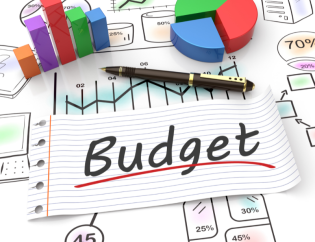“More ambitious proposals for economic growth were expected” – Silvan Mifsud, Director, Advisory Services
Given the unprecedented circumstances, the 2021 budget is focused at addressing the immediate economic threat presented by the Covid-19 pandemic as well as presenting social support. In the short run (next 6 months till March 2021), the extension of the wage supplement and the extension of the voucher scheme from January 2021, will help businesses and families alike. One has to see how the wage supplement will be adjusted to help those businesses suffering most and if it will be extended beyond March 2021.
It is our assessment that further assistance to businesses to lower their operating costs would have been warranted. Tax incentives and the lowering of VAT rates would have also boosted businesses’ ability to invest, a step that many other EU countries have taken, which is absent in Malta’s 2021 Budget.
The 2021 budget also looks beyond March 2021. Innovation incentives aimed at companies employing less than 50 persons and the holistic plan to attract the digital and innovative economy (such as esports, virtual and augmented reality) are set to diversify the Maltese economy while boosting productivity and economic growth. Furthermore, an effort will be made to achieve a more sustainable economy with a number of green economy measures. However, to achieve the above some government assistance will be needed with respect to restructuring and reskilling of the workforce. In this respect, many initiatives are mentioned both with regards to the green economy and the digital sector but a certain level of detail of how these initiatives will actually be implemented is still missing.
Good governance is still a priority for government and an added effort will be made to have recommendations presented by the Venice commission, GRECO and Moneyal implemented. A positive assessment in addressing the recommendations highlighted in the 2019 Moneyval report is vital due to our dependence on the financial services industry and foreign investment.
Faced with a decrease in GDP of 7.4% when compared to 2019 and a rise in government spending in 2020, this year (2020) Government is expecting a deficit in its finances of €1.18billion (9.4% of GDP) with public debt increasing to €6.90billion (54.97% of GDP).
With the proposed 2021 budget, GDP in 2021 is expected to amount to €13.35billion (an increase of 7.3% over 2020), however, this is based on the assumption that the economy will have a quick recovery after March 2021. An assumption that might still turn out to be incorrect.
Government is forecasting to keep running a deficit in public finances until 2023, with a deficit of €788 million in 2021, €597 million in 2022 and €567 million in 2023. This means that the stock of public debt is expected to hit €9.1billion (60.45% of GDP) in 2023.
Overall, our view is that the 2021 budget has a heavier accent on the social side than the economic side where more ambitious proposals were expected. One must treat with caution the expected growth figure for 2021 because the situation is still very uncertain. What is worrying however is that the Government’s projected growth seems to hinge on a continued growth of the construction sector when the very sustainability of the growth in that sector is being questioned. Indeed, we find this somewhat in contradiction to the Government’s declared intention to go for green growth. It is our strong recommendation that rather than try and capture the past trends we should be ambitiously looking for a more sustainable and sensible economic model.










